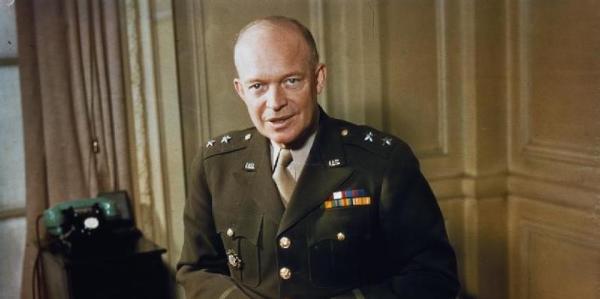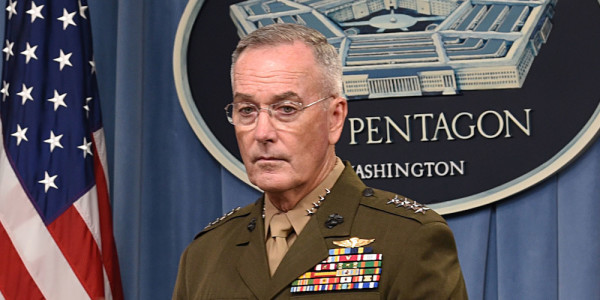An otherwise sleepy confirmation hearing for Defense Secretary nominee Mark Esper was jolted from its legislative stupor after Sen. Elizabeth Warren (D-Mass.) grilled the former Raytheon lobbyist on ethical issues regarding his involvement with his former employer.
Esper, who worked as a lobbyist for Raytheon from 2010 to 2017, maintained on Tuesday that the Pentagon screening agreement he signed when he took over as acting secretary in June is sufficient in avoiding any ethical entanglements when it comes to the defense contractor.
A screening agreement is “an internal document that directs the staff: If something comes, this is how you have to treat it,” Chief of Staff to the Secretary Eric Chewning told reporters.
As Stars and Stripes reported, Esper stated in his agreement that he “would still be disqualified as defense secretary after November from participating in decisions about Raytheon unless he obtains a waiver.” And while he declined on Tuesday to say he would not seek such a waiver, he submitted a statement from the director of the DoD’s Standards of Conduct Office that said he has not at any time since joining the Department as Secretary of the Army sought a waiver related to his ethics agreement.
A screening agreement, however, isn’t the same as an ethics agreement, and Warren repeatedly told Esper that the American people “deserve to know that you’re making decisions in our country’s best interest, not in your own financial interest.”
“So let me get this straight,” Warren told Esper on Tuesday, after a heated exchange in which the two repeatedly talked over each other. “You’re still due to get a $1 million payout from when you lobbied for Raytheon, you won’t commit to recuse yourself from Raytheon’s decision, you insist on being free to seek a waiver that would let you make decision affecting Raytheon’s bottom line and your remaining financial interest, and you won’t rule out taking a trip right back through the revolving door on your way out of government service, or even just delaying that trip for four years after you leave government.”
“The American people deserve to know that you’re making decisions in our country’s best security interest, not in your own financial interest,” she added. “You can’t make those commitments to this committee, that means you should not be confirmed as Secretary of Defense.”
Esper responded by invoking his sense of patriotism and civic duty.
“At the age of 18, I went to West Point, and I swore an oath to defend this constitution, and I embraced the motto called duty, honor and country,” Esper said. “And I have lived my life in accordance to those values ever since then. I went to war for this country, I have served overseas for this country, I have stepped down from jobs that have paid me well more than when I was working anywhere else. And each time it was to serve the public good and to serve the young men and women in our armed services. So no, I disagree. I think the presumption is for some reason, anybody who comes from the business or the corporate world is corrupt.”
Warren, a 2020 presidential candidate and outspoken critic of the military-industrial complex, previously sent a letter to Esper that, published the day before his confirmation hearing, addressed the same concerns with his Raytheon ties. In the letter, Warren notes that Esper’s 2017 ethics agreement, which he signed to become Army secretary, expires in November 2019.
“I asked that, like former Acting Secretary Patrick Shanahan, you extend your recusal commitment through the duration of your tenure at the DoD,” Warren wrote. “You indicated you would not do so. I am trouble by your unwillingness to fully address your real and perceived conflicts of interest, and write to ask that you reconsider your refusal to extend your Raytheon recusal through the duration of your tenure at DoD.”
Shanahan — who faced questions due to his former employment at Boeing — was ultimately cleared in a probe from the Pentagon’s Inspector General, though Warren wrote in a post on Medium shortly after that Shanahan’s “obvious potential conflicts of interest remain.”
From the moment Esper was announced as the acting secretary, concerns were raised about his defense contractor past. Citizens for Responsibility and Ethics in Washington (CREW), a government watchdog organization that first raised a red flag over Shanahan’s professional history, sent a statement out the day that Esper was announced as taking over for Shanahan, saying Esper’s ethics agreement “and his ability to follow it—will be something we will be watching closely.”
Sen. Jim Inhofe, chairman of the committee, apologized to Esper in his final remarks to him before he left the hearing.
“I want to make one comment … to apologize to you for what you had to be confronted with. It was unfair, and you handled it beautifully.”
























